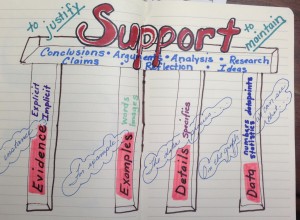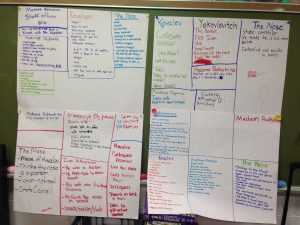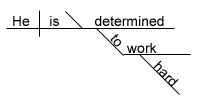Today a student asked me how many words the Integrity Essay needed to be. When I responded that he could find that information on the blog, he made a derogatory comment about it being my job to answer students’ questions. I replied that I had just answered his question by directing him as to where he could find the information for himself. Why do you think I would do that? Wouldn’t it be easier to just repeat the same instruction given last Wednesday and repeated again on Friday, and then again on Monday of this week? Those were not rhetorical questions. I really want you to think of a response. Why would I not just take the easy way out and keep repeating the same information over and over and over again no matter how many times it was ask?
Well, now let me give you my response to both those questions. Yes, it would simply be easier and probably make me a more likable teacher if I simply smiles and provided the information again to every student who didn’t pay attention when I was original providing the information because I was speaking to the entire class and not them individually. One of the skills I see lacking in students today is the ability to do for themselves or take responsibility for information given as a part of the entire class instruction. My job is to teach you how to read, write, listen, and speak more effectively. Each of those skills require critical thinking and the use of habits of mind and study skills that come from being able to connect ideas and information. By not listen to information given, or reviewing the information posted for you, you are not taking any of the responsibility for developing those skills, that I have pointed out to you from the start of the school year as being an important part of the course . If you have listened, taken notes, and reviewed the information on the blog and still do not understand something, or how to do something, then by all means ask. But no, my job is absolutely not doing the work for you and repeating information that you are more than capable of finding on your own just because it is easier to ask again rather than find the information yourself is doing the work for you. Yes, I too get tired of saying, “read the blog” over and over again.
Believe it or not, I do have solid research proven reasons for the way I do most things that I do in the class room, including summarizing nearly every day of class room instruction for you on the blog several times a week. So the next time you think I am not doing my job because you don’t get the answer you might like from me, or the next time you miss school (even when it is absolutely unavoidable to have missed school ) go to the blog first to see what you can figure out for yourself. Then once you have reviewed the information provided, please, by all means come to me and ask questions about anything that you do not understand. I will always answer your question, it may just be an answer that helps direct you to the right place to find what you needed.
Directly from the Eng. 9 Syllabus that you were provided at the beginning of the school year:
Questions
While it is true that someone great once said, “there is never a dumb question” I expect you to be independent learners, taking ultimate responsibility for your learning. Therefore, think prior to asking questions. Think about whether or not I have already provided you that information and if so, where you can go back to find the information prior to asking a question. Our class time together is important and I promise that I will have prepared extensively for what we will be doing each day, therefore I don’t feel it is too much to expect that you will listen carefully, take notes when needed, and not waste class time on questions that you should be able to answer yourself. Strive to be one of those people who furthers the issue by asking well developed probing questions of relevance to the entire class.
“If I have to tell you what to do, then you are not marketable” Apple
I will propose problems, guide you to resources and solutions, opportunities and different ways of thinking, but you have to own your own learning. I will own the learning target or objective as aligned to our state standards for English 9 and allow you to choose the how. If one way of learning isn’t working for you, I will help you uncover deeper meaning within varied learning techniques, but I can’t learn it for you. The sooner you take personal responsibility for your learning, the quicker you will be on the path of choosing your own life-long adventure. Educate yourself on intellectual autonomy and empower yourself. You get about 100 years to live out the story of your life and I am not the director. You are the star and director of your own learning and your life story.





